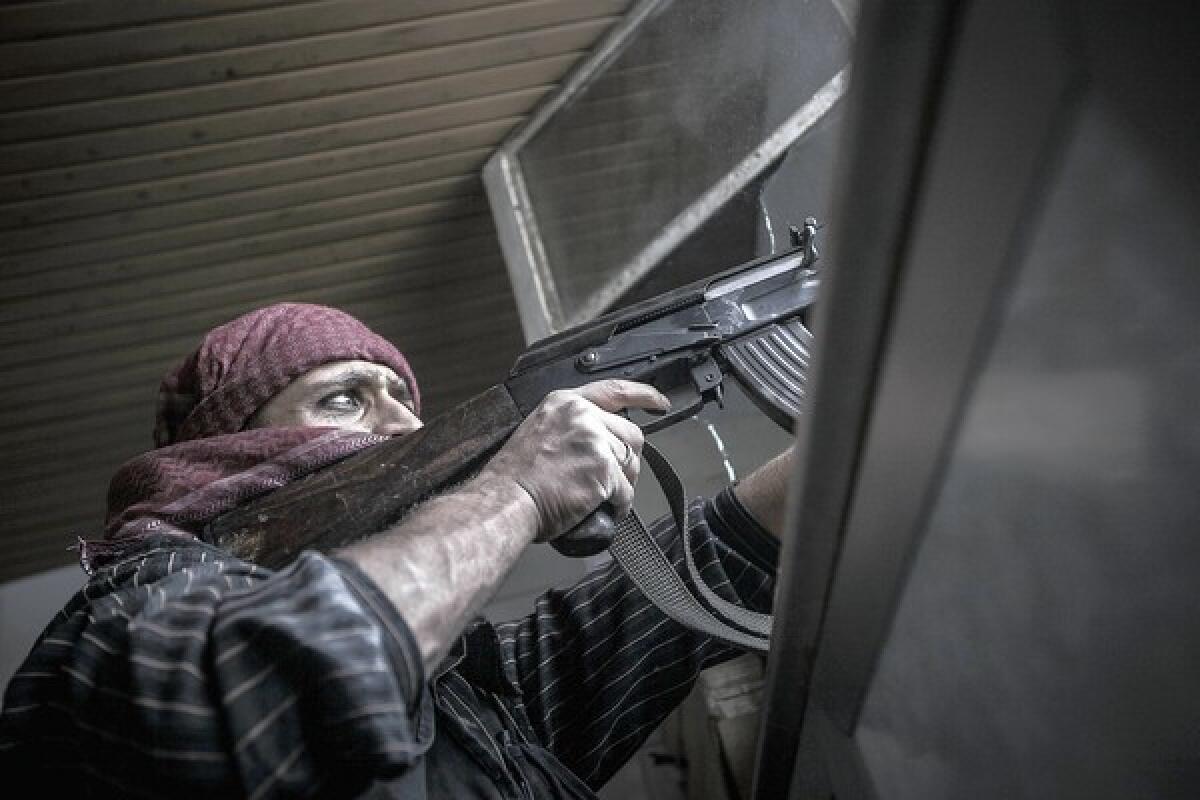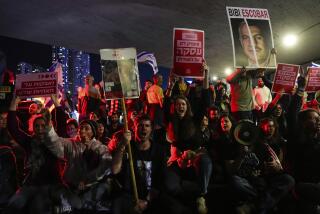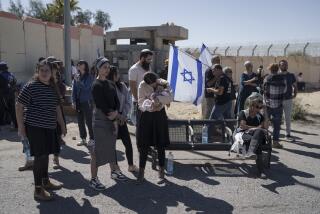As Syria cease-fire looms, so do the doubts

BEIRUT — The Syrian military said Thursday that its forces would observe a temporary holiday cease-fire starting today, signaling a potential new phase in international efforts to halt a conflict that has caused vast destruction and loss of life and threatened to destabilize the Middle East.
Brokering the truce was peace envoy Lakhdar Brahimi, a veteran Algerian diplomat who has been on a shuttle diplomacy mission aimed at selling the truce idea to the warring sides and to their international allies.
Brahimi has voiced optimism that a truce coinciding with the Muslim holiday of Eid al-Adha could expand into a more far-reaching peace initiative. How that might happen was unclear.
Both sides reacted cautiously to the announcement and there were no signs of a broader breakthrough in the 19-month-old conflict.
In a late-afternoon bulletin, Syria’s state-run television reported that the armed forces command had agreed to a “cease of military operations” for four days beginning Friday, the first day of the holiday.
But authorities stressed that the truce was conditional and that the military reserved the right to respond to attacks or block any efforts to reinforce or resupply “terrorist groups,” the government’s label for the rebels fighting to oust President Bashar Assad.
Rebel commanders expressed skepticism about the truce, but some indicated that their forces would respect the initiative if the military suspended offensive operations.
Unlike an ill-fated cease-fire six months ago, this truce is not linked to any formal peace plan or call for negotiations. Nor are there any international observers inside Syria to monitor compliance.
At this point, any form of peace negotiations seems a long way off: The government says it will not talk with “terrorists” and rebels say Assad must step down before discussions begin.
Even a limited truce, however, provides some glimmer of hope, as well as the prospect of a respite, at least for the weekend, for the beleaguered residents of the northern city of Aleppo and other areas of Syria under government bombardment.
Still, many observers regard the chances of a broader peace, or even four days without an outbreak of violence, as slim.
“I don’t believe the cease-fire will hold,” Mustafa Sheik, who heads the military council of the Free Syrian Army, a rebel umbrella group, told the pan-Arab Al Jazeera satellite news station.
Some rebel factions have dismissed the truce outright and say they have no intention of laying down their arms, even for four days. Others have publicly backed the plan but insist the military must also not use a pause in fighting to rearm and resupply troops.
The opposition’s fragmented nature poses a huge hurdle for any peace initiative. Without a central rebel command, no one can order the scores of brigades and militias fighting in Syria to stop shooting.
Syria’s acceptance of the cease-fire was widely expected after intensive efforts by Brahimi, who serves as special peace envoy to Syria for the United Nations and the Arab League. Last weekend, he met in Damascus, the Syrian capital, with Assad, who apparently gave his go-ahead for the truce.
The deal was first announced by Brahimi in Cairo on Wednesday, but Assad’s government waited until Thursday to give its official imprimatur.
Russia, a key Assad ally, has encouraged Damascus to go along with the truce. Moscow has used its position as a permanent member of the U.N. Security Council to head off any international action against the Syrian government.
Fierce battles have been playing out in many areas of the country, including Aleppo, the nation’s commercial center; the central city of Homs, Syria’s third-most populous; and around Damascus. Fighting has also raged in small towns and rural areas. The daily death toll averages about 150, according to opposition groups. The government provides no overall casualty figures.
Rebels control considerable swaths of territory, though many “liberated” zones suffer artillery bombardment and none are out of the reach of government warplanes and attack helicopters. Rebels also control a number of border crossings with neighboring Turkey, a key rebel logistics and resupply hub.
The latest truce carries none of the buildup or bureaucratic scaffolding that accompanied the April cease-fire, which was brokered by Brahimi’s predecessor, Kofi Annan, the former U.N. secretary-general and Nobel laureate. That truce was part of Annan’s six-point peace plan, which, among other things, called on Assad to withdraw forces and armor from populated areas. Both sides agreed to the plan. But the military never pulled back and fighting soon resumed.
Each side blamed the other for the collapse of the cease-fire. A frustrated Annan resigned the envoy post in August, labeling his job “mission impossible” and saying that Assad must step down for any kind of peace to take hold.
More to Read
Start your day right
Sign up for Essential California for news, features and recommendations from the L.A. Times and beyond in your inbox six days a week.
You may occasionally receive promotional content from the Los Angeles Times.






